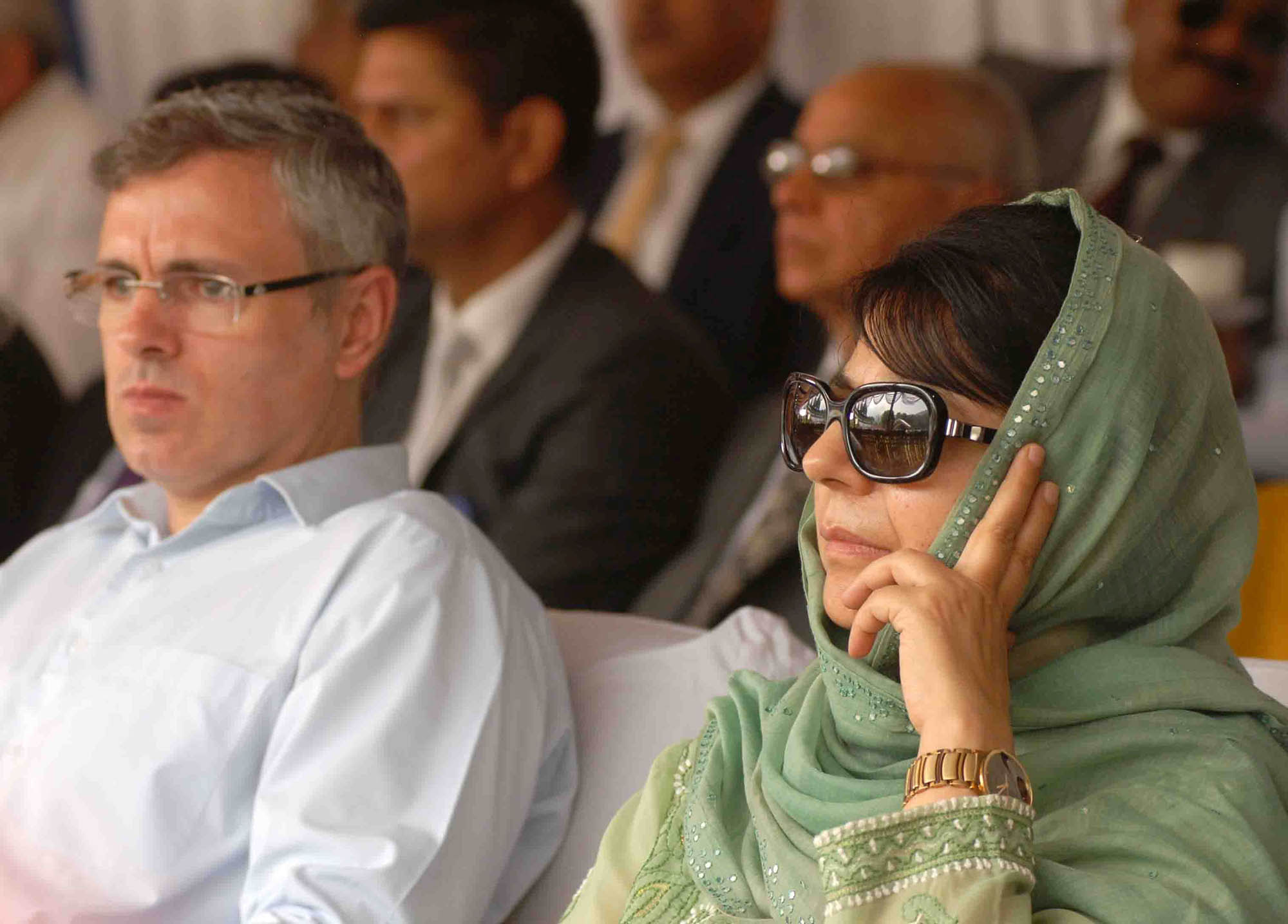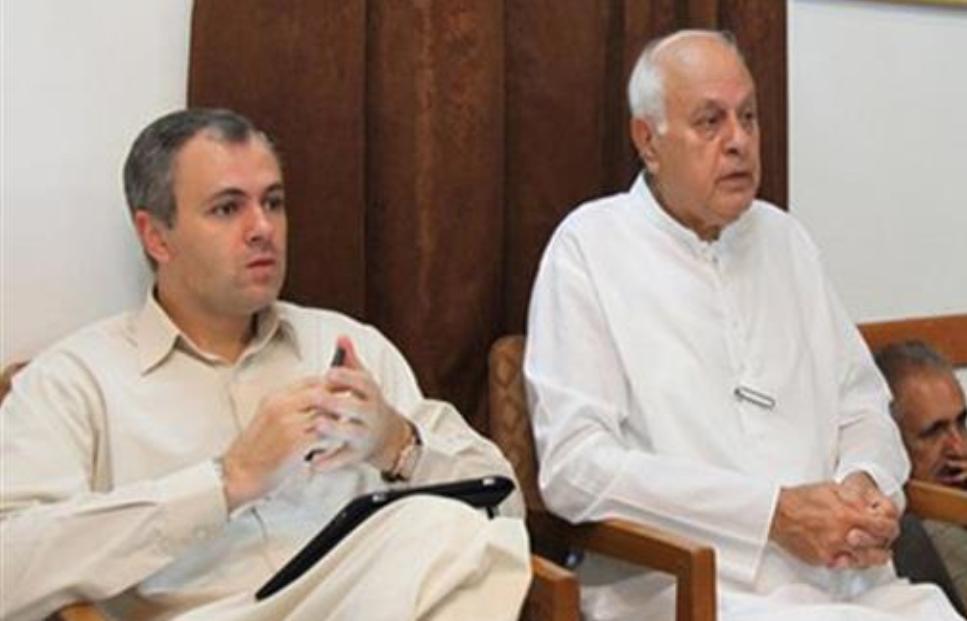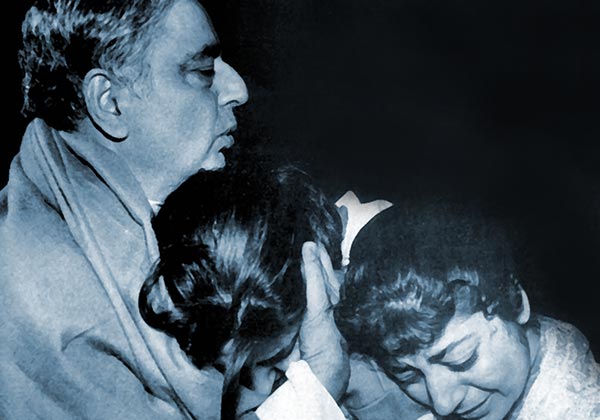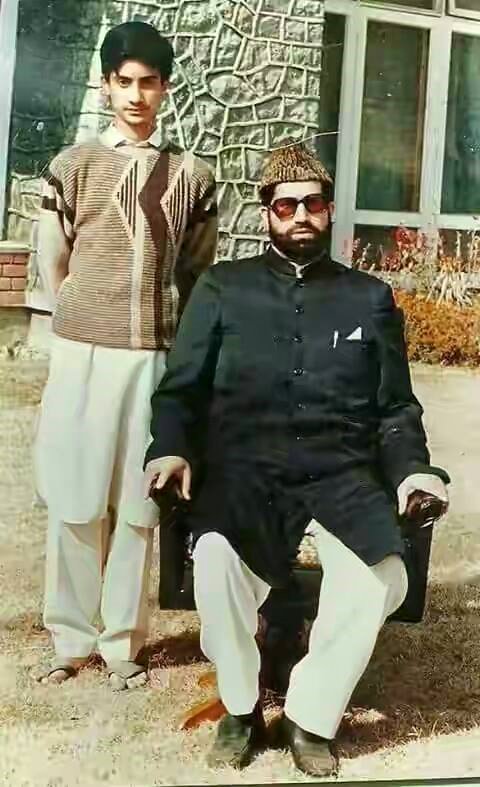From an independent Kingdom to present dispensation, and a lot of chaos and tyranny in between, it has been a long journey for Kashmir’s system of governance. The state is a long way from becoming a society of equals as few families would continue to be more equal than others. Hamidullah Dar reports.

PHOTO BY BILAL BAHADUR
Sixty-two years after Jammu and Kashmir rid itself of a family that had appropriated the right to rule its people, the power still lies with a few families, though they use “democratic” means to hold on to it. The revolt against the Dogra Maharajas was targeted at ending an obnoxious, tyrannical dynastic regime where their male children inherited the right to rule besides the family property. The system, world over, is trashed as it is considered archaic, unethical and illogical which bestows the power upon a person, not for his or her (mostly his) ability or competence but only lineage. Such a system has been proved to breed autocracy, corruption, nepotism and inequality in the society. Moreover, it does not allow any meaningful second rung leadership to blossom.
“Succession of leaders’ children to high political positions is a reality and people have accepted it. One person starts a party and it becomes a family enterprise with the head of the family its president or chief executive,” noted columnist P G Rasool says. “The dynastic rule is presented in the garb of democracy which at times blurs the line between the two. Only 10 elite families have been ruling the state for the last 60 years,” Rasool adds.
With a few “political families” consolidating power in their hands, the state is far from a democracy which could go hand in hand with meritocracy. Most of the so-called political bigwigs in J&K have thrust their children on the centre stage bestowing them with plum posts in the government. The trend was set by Shiekh Abdullah himself when on his death his son inherited the throne and apparently the party with the largest support base in the state. Political scientists believe that holding on to and consolidating power within families “gnaws at the very roots” of democracy.

Analysts say that the popular leaders placing their wards at the political positions is detrimental for democracy and evolution of society. “Instead of the evolution of a politician in a person, he or she is directly handed over the reigns of leadership. Even Dr Farooq was designated chief minister by his father without fighting any election in 1982,” says Sajad Ansar, who teaches political science. “It manifests the signs of serious sickness in our political system which is the increasing role of dynastic succession.”
However, Ali Mohammad Sagar, a National Conference minister denies the existence of the dynastic rule in the state. “How can one say it is a dynastic rule when people have voted Omar for chief minister’s chair? Dr Farooq and Sheikh Mohammad Abdullah did not enjoy chief ministry without people’s support. It is the question of people’s verdict and it strengthens the roots of democracy.”
The phenomenon of leadership passing on to the leaders’ wards is not unique to Kashmir but a larger reality in the sub-continent.
“It happens elsewhere as well but the way people are taken for granted in Kashmir, makes it different and ugly too,” says Dr Sheikh Showkat of Kashmir University’s Law department.
Some political scientists trace the roots of the dynastic culture to the anti-colonial movements in India and princely states.
Dr Gull Mohammad Wani of Political Science department of Kashmir University says, “Local leaders represented the aspirations of the people in their fight against the princes. When princes were dethroned, political power transferred to new leadership who ruled for a long time. It gave a fillip to their children in local politics.”
One of the major fallouts of such a trend is that those who make it to the coveted posts are almost never the ablest candidates as lineage plays an important role in choosing the leader in such a political system.
Wani terms dynastic succession in politics as anti-democratic as it stifles the chances for best getting the rudders of power. “The element of competition for leadership within the party is throttled and the interests of a particular family or person take precedence over everything else,” Wani says.
The absence of a meaningful second rung leadership is attributed to the trend of the family getting precedence. The second rung leadership are the potential candidates to head an organisation or a party and if the need arises can be chosen for top posts in the government.
The second rung, experts say, is very important for the long term survival of a political party and usually, the successor is put forth during the time of the leader so that he or she gains wider acceptability beforehand.
“We have just one leader and that is Dr Farooq Abdullah. Till we have got a good leader there is no need to look here and there. If any party has second-line leadership it will not remain intact,” opines NC provincial president Ali Mohammad Dar.
Senior journalist and editor Urdu weekly Chattan, Tahir Mohiuddin, says “Second rung leadership is not flourishing anywhere. All political parties here are family or personality-based parties. If you say Dr Farooq has Omar Abdullah and Mufti Syed has Mehbooba Mufti, who make second-rung leaders, then it is true. Omar Abdullah has a long innings before him. Same is the case with Mehbooba Mufti, so where is the opportunity for any other leader of these parties to go to the top?”
Columnist P G Rasool also believes that second rung leadership among political parties doe does not exist at all.
“The leaders have a willful intention to remain clung to status, privileges and image that their position endows them with.
When somebody tries to rise to a level suited for a successor, he is cut to size. In fact, there is only one leader in a party and rest are employees,” says Rasool. “There is no hierarchical setup that could define the second rung leadership. All the power vests in one man or at most, in one family,” he added.
However, there are many political leaders who defend the familial succession in party leadership.
NC’s Dar says, “People have been reposing faith in the Sheikh family and they are devotees of the family for its contribution in ending a long period of oppression. And it is because of this that down at the grassroots level no leader other than from Sheikh family is accepted.”
The history of the state’s rulers in the past 60 years, apparently, has been a dynastic tussle between a few elite political families. Even stalwarts turned into minnows when they gave up the loyalty to the family or raised a word of rebellion against the family. The “rebels” could not survive for long.
Explaining Mirza Afzal Beigh’s going to oblivion after raising voice against Shiekh, Tahir Mohiuddin says, “Sheikh Abdullah and Mirza Afzal Beigh were colleagues. Beigh was an articulate leader with a lot of political acumen but when he parted ways with Sheikh, he was expected to mount tremendous pressure on Sheikh. He failed miserably because the clout surrounding Sheikh Abdullah had developed strong enough over the years.”

The Shiekhs are the pioneers of familial political succession as men from three generations have ruled the state – Shiekh Abdullah, Dr Farooq and his son Omar. However, there are others that have created a spot for their children though at different levels. The recent entrant on the state’s politic landscape the People’s Democratic Party is already headed that way, with papa Mufti Muhammad Sayeed choosing to be the party patron and his daughter Mehbooba its president.
But PDP spokesman, Nayeem Akhter, does not see any nepotism in the party. “Mufti Sahab had a chance to see his daughter deputy chief minister but he decided in favour of Muzaffar Beigh that belies allegations of nepotism in PDP.”
However, Tahir Mohiuddin says, “In power arrangement, Muzaffar Beigh can be made deputy CM but to see him becoming CM with Mehbooba watching approvingly is beyond possibility.”
Handing over the leadership reigns to their wards is a widespread phenomenon in J&K’s politics both mainstream as well as a separatist.
Many politicians, who could, have launched their wards in the political arena: Ali Mohammed Sagar’s son Salman is the Srinagar mayor, Sakina Itoo is the daughter of Wali Mohammad Itoo, Ajat Shatru, the scion of erstwhile Maharajas is the son of Karan Singh. Many other leaders including Mehboob Beigh, Sajad Kitchloo, Tanveer Sadiq, Irfan Shah, Aga Rohullah, Mian Altaf, Nasir Sogami can boast of a political lineage. Sajad and Bilal Lone are sons of Abdul Gani Lone, the youngest ever chairman of Hurriyat Conference at 17, Umar Farooq is the son Molvi Farooq of the Mirwaiz family.
Mohiuddin opines that the personality culture has deep roots in the psyche of the people of the valley and they stick to it even at the cost of developmental issues and sound socio-economic policies. “People have been holding fast to the personality cult in the valley; be it mainstream or separate politics. Merit and capability are no criteria in the valley. Omar Abdullah, Mehbooba Mufti, Sajad Lone, Mirwaiz Umar Farooq, Qazi Yasir and others are in the field due to dynastic succession. Mirwaiz even was chosen Chairman Hurriyat Conference at a tender age when stalwarts like Syed Ali Geelani, Abdul Gani Lone and others were a much better choice,” Tahir Mohiuddin says.
However, Gull Wani says dynastic succession has its own benefits such as sometimes ensuring political stability. “Nehru/ Gandhi dynasty saved India from falling into the vortex of political instability after independence,” says he.
Political watchers like Mohiuddin allege that NC even after emerging as the single largest party in 2002 elections sat in the opposition merely because there was none from the family to take the top post. Omar Abdullah had lost Ganderbal and Farooq did not fight the elections.
“As a matter of fact, they should have given the reigns to either Abdul Rahim Rather or Ali Mohammad Sagar which NC did not do. This time Omar Abdullah won and NC leapt for power,” says Mohiuddin.
But NC provincial president Dar refutes Mohiuddin. “The result of the election held in 2002 was the first setback NC felt in its entire course and we opted to remain in opposition to have some introspection regarding the regrouping of the party. If Omar Sahab had lost that time we could have Dr Farooq as CM and let me make it clear that Congress was ready for supporting us in forming a government. But we declined power. We were suffering from factionalism that we rectified”, says Dar.
Observers say that dynastic rule makes a party ineffective despite its being seemingly more powerful. “Sheikh dynasty’s hunger for power has rendered it ineffective in policymaking. The mass support it once commanded could have made it a kingmaker in the state with reins in its hands but instead, NC patrons themselves became chief ministers thereby lending themselves to be the puppet rulers with strings elsewhere,” opines Sajad Ansar.
National Conference and Jamaat-i-Islami are the two oldest parties of the state. While the former was headed by the Shiekh family during its entire history the latter being an ideology-driven party has witnessed Amirs (heads) from all regions and strata of the society. “Had NC gone Jamaat-i- Islami way in choosing its leaders, it would have not dwarfed with every passing election. If mainstream and separatist camps adhere to the dynastic culture, the day is not far when their ardent supporters will feel choked and search for alternatives,” Sajad Ansar concludes.
If there are clear interests in the mainstream camp for major political families to keep their parties within the grip of the family, the phenomenon pervading the separatist camp is a bit surprising. The second rung leadership is mostly missing in the separatist camp besides there are many leaders who have inherited a political base.
“I think like mainstream parties, separatists have adopted the tactics of the family first and they give preference to their near ones in party matters so that the power or the reigns remain with them,” says Irshad Ahmad Bhat, a college lecturer.
Separatist parties says Dr Wani, are not normal political parties and they suffer from the subject and parochial political culture where there is “little chance for others to reach a level where they can be taller than the sitting leader”.
Separatists, unlike their mainstream counterparts, seem to be in a dilemma to argue in favour of their current scheme of things. Azam Inqilabi, chairman Mahazi Azaadi says, “It is the armchair journalists who create a problem. We have not got any school that could churn out leaders so whosoever is available is welcome. It is wrong to say that the dynastic element plays a vital role in the placing of a person at the helm. Omar Farooq has proved it as he is delivering to the hilt after having been chosen in the wake of Maulvi Farooq’s death. The resistance has reached a point where a collective approach is much important than individuals. The decision of choosing a successor has to be left to Allah.”

Shabir Ahmad Shah of the Democratic Freedom Party shares Inqilabi’s views. “Young people are coming and the leadership is transferring in their hands. Now, the nation is politically conscious enough to discriminate the good from bad and it will not choose the wrong people. Leadership does not come down as heredity; we have not got it that way. It reaches to a few as heredity. Ours is a blood-soaked movement and it throws up conscientious people as leaders”, says Shah. “We are trying to institutionalise Hurriyat and establish a systematic setup,” adds Shah.
Tahir Mohiuddin attributes the concentration of power in few hands and the absence of second rung leadership in separatist camp to the price it entails. “The problem is that well educated and politically conscious people joining a separatist organisation means paying a price in the form of jails, torture and sometimes execution. So whosoever emerges from within has to garner wider acceptability. Yasin Malik is an exceptional case where a militant shunned gun and carved a space with wider popularity for himself. In Liberation Front, after Malik there is nobody who has such huge popularity though they have some senior leaders,” says Mohiuddin.
The dynastic rule may stay, says Dr Gull Wani, but the “authoritarianism of yesteryears is no more acceptable or possible now”. “Of late the trend of coalition governments has picked up and it paves way for collective leadership which severely dents dynastic element. With parties vying for a better share of power, the inner-party democratisation culture has started creeping in, though at a slower pace,” says Dr Wani
And in future anyone interested in Kashmir politics has to deliver without relying solely on dynastic affiliations; be it Sheikh dynasty’s Omar Abdullah or Mirwaiz dynasty’s Umar Farooq,” adds Dr Showkat.















